|

Tyrian
Lodge is located in South Street in Eastbourne conveniently 200 meters or
so from the old police station in Grove Road. There is thus a connection
between Sussex police and this lodge, though not restricted to just this
lodge, where Sussex
police operate in Brighton, Lewes,
Seaford and other towns that have other Lodges.
Notably,
Derek Best and Brian West
were builders in the region, while Elphick was a plastering firm. Derek
Best was related to Ian Kay
the assistant district planning officer who worked for Wealden
District Council for over 20 years in a position of considerable
influence and trust that he is said to have abused when his
father-in-law's applications were due for hearing. Ian Kay worked with George
White, who knew about this connection, but kept quiet about the
conflict of interest as did Ashley
Brown and potentially many other officers in Wealden DC, that must
have included the chief executives in the circle of power that
masterminded the demolition of Bushy Wood
animal sanctuary, once owned by a competing builder: Gordon Worcester.
You
can see from the 1985/86 year book who the members of this Lodge were at
that time. We would like more information relating to the 1990s and 2000.
If you can help us with any such information all contributions will be
accepted in confidence. or why not mail us
whatever you have anonymously.
George
White and Thomas
Hoy were the officers who lied to Inspector Raymond
Dannreuther between 1986 and 1987 concerning the old generating
buildings at Herstmonceux.
That
lie was perpetuated by J
D Moss and Chezel Bird, with Victorio
Scarpa and Christine
Nuttall providing legal, or rather illegal steerage as solicitors when
the lie was nursed through yet another public inquiry in 1997 and 1998.
This time the inspector being lied to was Raymond
Michael. You are probably wondering how it is that the Secretary of
State can be so easily deceived? So are we!
In
1986 the membership of Tyrian Lodge included a significant number of
builders and other associated trades in and around Eastbourne, Pevensey
Bay, Seaford. How many police
officers we do not yet know because the cops are pretty tight lipped when
it comes to revealing details of their membership of this secret
society.
Why? Because with that information 2+2=4. And they don't want you to be
able to join the
dots.
In
1997 a Petition was presented to Wealden by
12 unrelated persons who claimed to have suffered treatment that was
discriminatory amongst other charges. Many of the complaints involved the
actions of David Phillips,
the head enforcement officer at the time.
What
is interesting is the number of golden handshakes that Wealden District
Council dole out to retiring officers. We wonder if this is legal. Derek
Holness is said to have demanded £250,000 pound when retiring as
chief executive following the Petition. Notably, when Lord
Richard Newton referred the Petitioner's complaints to Sussex
police, not one of the informants were contacted and there is no
recorded crime number, meaning that there was no investigation at all.
This
implicates the CPS,
who would have known from the files that they were handed, that no
investigation had taken place. Not one of the officers complained of was
interviewed under caution or at all.
As
you may imagine, it was in the interests of Wealden District Council and
the Sussex police to silence the person who continued to raise the
inconvenient truth as to the crime of not investigating a crime regarding
the Petition cover up, or
WealdenGate. This person was none other than the occupier of the
generating station, who had by now uncovered evidence as to the Wealden
lying to both Inspectors at the two public inquiries with the help of the
then County Archaeologist and University College London Institute of
Archaeology who conducted a site survey and compiled an authoritative Report
that proved Wealden's officers to be liars. This is where the proverbial shit
hit the fan, increasing the need for this council to bury their nemesis.
Institutionalised
discrimination is illegal. Both Wealden and Sussex police are held to be
guilty of institutionalised
discrimination and have done nothing to deny that allegation - so must
accept that they are guilty. It is alleged that Sussex police abused their
authority to gain a criminal conviction to discredit the occupier of the
generating buildings. They managed to convince a Jury of 12 members of the
public that this poor chap was guilty of rape,
even though the claimant was intact and a virgin.
The police managed this little trick by engaging a so-called expert
who was prepared to mislead the Jury as to marks that are naturally occurring.
The expert told the Jury otherwise. Claiming that a naturally occurring
mark was indicative of penetration. The expert witness did not use a
colposcope to measure the hymen to vaginal
wall distance, because she knew that if she did so and included what she
found in her findings that the police would be unable to gain the
conviction they were seeking. Because such examination would only
reinforce her findings that: "the hymen could not be opened even with
labial traction."
It
is likely that the Judge
in this case was a mason, had masonic connections, or that the CPS team
had a high masonic quotient, because the Judge instructed the Jury to
become expert witnesses concerning medical evidence ("make of it what
you will") and lied to the Jury in his summing up about the
provenance of a work diary,
that he attributed to the defendant, when in fact it belonged to a community
psychiatric
nurse giving evidence and was independent evidence that proved a lack of
opportunity. Independent evidence like this would have been sure to make
the Jury question the reliability of the claimant who was prone to screen
(implanted) memories and had been coached by social services as to
getting her story right. It is alleged that if confronted by her medical
condition at the time of examination and the diary as compared to her
statement, that even the complainant might begin to question her
testimony. No doubt this will haunt her, but we must feel a little sorry
for the girl who was under extreme emotional and social stress at that
time, even if she did send an innocent man to
prison for calling off an engagement
to her mother.
The
problem with all of this is that in England there is no right of appeal.
Any referral to the Appeal Court must come from the Criminal
Cases Review Commission and their job is to cover up cases, rather
than reveal the true extent of corruption in the British judicial system.
Such activities by the CCRC
are contrary to the United
Nations agenda under SDG16,
let alone conflict with the Universal
Declaration of Human Rights. We invite you to conclude that we are not
big on transparency and accountability in Britain.
The police in England are not accountable even when they shoot an unarmed,
naked man, in cold blood. See the James
(Jimmy) Ashley case to gain a fuller picture as to the level of
corruption in Sussex police.
In
effect Sussex police gave Ian Kay, Ashley Brown, David Phillips and other
Wealden officers immunity from prosecution. WealdenGate has yet to see the
light of day. We will keep digging in the hope that one day the criminals
in Wealden DC and those aiding and abetting
their crimes will be prosecuted. We suspect that when that day comes,
Tyrian Lodge will feature in the drama as it unfolds.
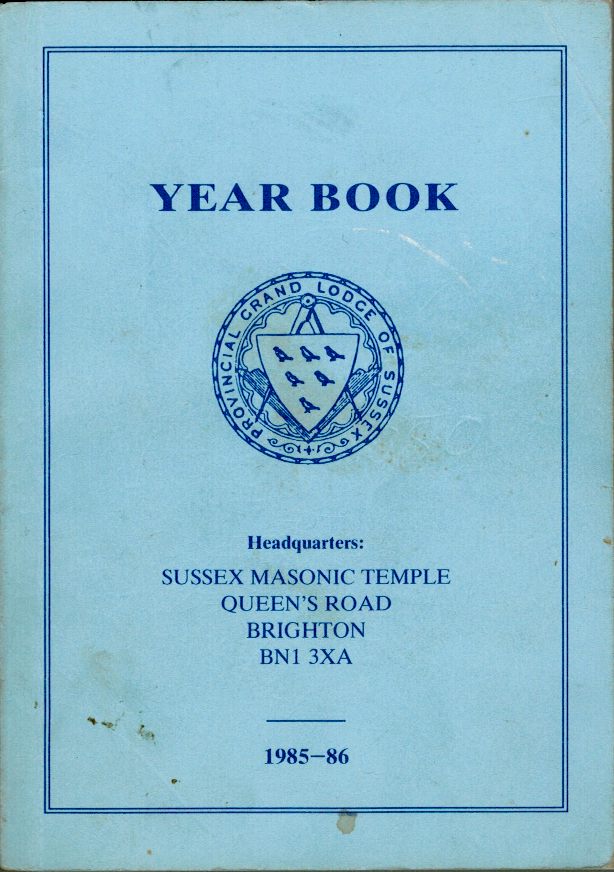
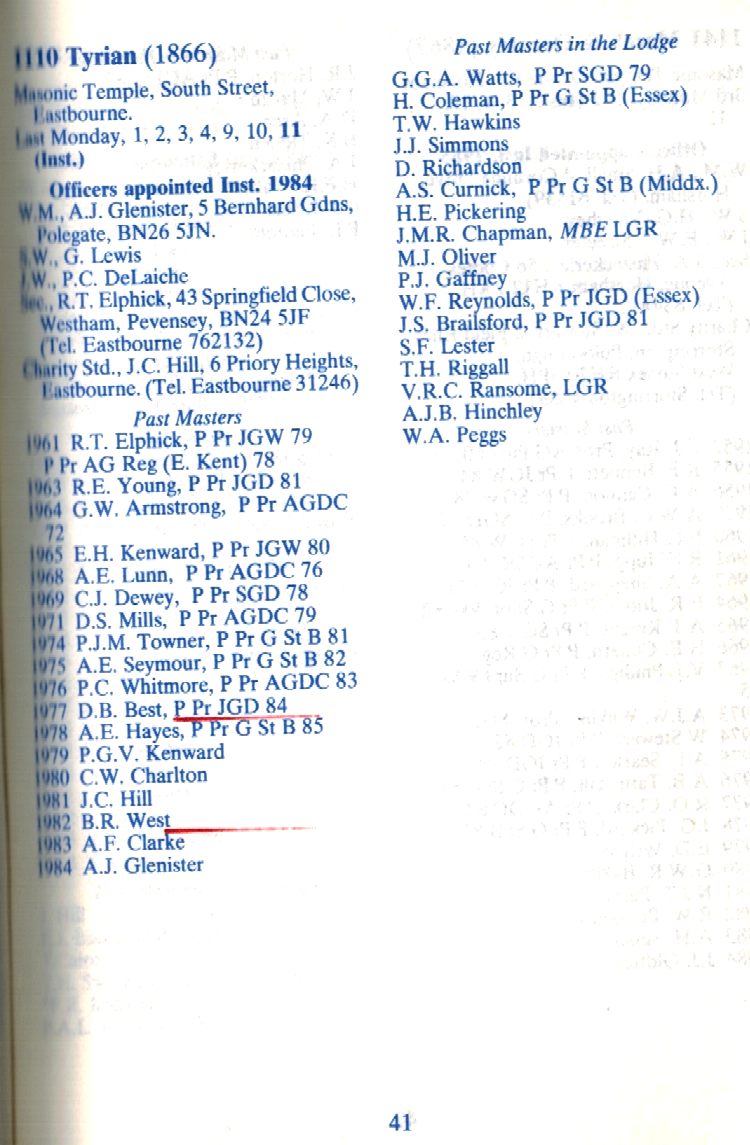
SUSSEX
MASONS - The burning question is how many of the chiefs in Sussex
Police are masons, and how many other councillors or officers of Wealden
District Council are masons? It is probable that once the characters in
this drama are identified, that we might have a clearer picture of how
it was that the Sussex Police failed to investigate 12 independent
claims of council corruption in 1997 from the Wealden
Action Group (WAG). Readers should be
aware that not a single statement was taken from the complainants by
Sussex Police, nor were any of the 12 complainants contacted by the
police to view their evidence. Yet, Sussex Police put this entirely
un-investigated series of crimes to the CPS as if they had been
investigated. Then, the police provided blank sheets of their headed
paper to the council they were supposed to be investigating, for them to
be able to write what they wanted about themselves. This is organised
crime, plain and simple, this revelation witnessed by Richard de Rivaz,
a WAG member.
|
ADDRESS:
|
Sussex
Masonic Temple
Queens Road
Brighton
BN1
3XA
|
|
TELEPHONE:
|
+44
(0) 1273
|
|
FAX:
|
+44
(0) 1273
|
LINKS:
MQ
Magazine http://www.mqmagazine.co.uk
Supreme
Grand Chapter of England
Official
website of the Royal Arch Masons of England http://www.grandchapter.org.uk
Library
and Museum of the United Grand Lodge of England
Official
website of the Library and Museum http://freemasonry.london.museum
Letchworth's
Shop on-line http://letchworthshop.co.uk
Masonic
Charities
The Grand Charity www.grandcharity.co.uk
The
Royal Masonic Trust for Girls and Boys www.rmtgb.org
The Royal Masonic Benevolent Institution www.rmbi.org.uk
The New Masonic Samaritan Fund www.nmsf.org
Related Organisational Links
Canonbury Masonic Research Centre www.canonbury.ac.uk
Sheffield University Centre for Masonic Research www.freemasonry.dept.shef.ac.uk
Quatuor Coronati Lodge of Research www.quatuorcoronati.com
Freemasonry Today Magazine www.freemasonrytoday.com
The Cornerstone Society www.cornerstonesociety.com
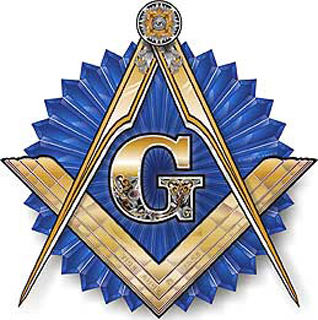
THE
BANK of ENGLAND
In 1789 Alexander Hamilton became the first Treasury Secretary of the
United
States. Hamilton was one of many Founding Fathers who were Freemasons. He had close relations with the Rothschild family which owns the Bank of England and leads the European Freemason movement.
George
Washington, Benjamin
Franklin, John Jay, Ethan Allen, Samuel Adams, Patrick Henry, John Brown and Roger Sherman were all Masons.
http://www.globalresearch.ca/the-federal-reserve-cartel-freemasons-and-the-house-of-rothschild
http://www.bilderberg.org/masons.htm
http://listverse.com/2012/11/21/top-10-scandalous-freemason-secrets/

SUSSEX
MASONS - The burning question is how many of the chiefs in Sussex
Police are masons, and how many other councillors or officers of Wealden
District Council are masons? It is probable that once the characters in
this drama are identified, that we might have a clearer picture of how
it was that the Sussex Police failed to investigate 12 independent
claims of council corruption in 1997 from the Wealden
Action Group (WAG). Readers should be
aware that not a single statement was taken from the complainants by
Sussex Police, nor were any of the 12 complainants contacted by the
police to view their evidence. Yet, Sussex Police put this entirely
un-investigated series of crimes to the CPS as if they had been
investigated. It is alleged that then, the police provided blank sheets of their headed
paper to the council they were supposed to be investigating, for them to
be able to write what they wanted about themselves. This is organised
crime, plain and simple, this revelation witnessed by Richard de
Rivaz,
a WAG member at that time.
SUSSEX
POLICE
Many
policemen are Masons. This can lead to corruption at high levels,
where fellow Masons, members of the public, might obtain favours, charges
dropped, or charges brought against someone, as examples.
The law is
quite often used incorrectly (illegally) to further the objectives of
private causes. But who is there to investigate? Since many, if not most
high ranking officers are Masons, in whichever force, even an outside
force is unlikely to identify an officer who will make any effort to
investigate a fellow officer. It's a club, for a favoured few who
will do anything to protect their ranks from outsiders
bucking the system.
Our fonder was one of those who bucked the system, and when he fell foul
of a Mason's family, that was when he became the subject of unwanted
attention.
'The
System' is a fictional work inspired by a true story. The names and
locations have been changed to protect the identities and characters both
living and dead. The book offers an insight into several aspects of the
British planning and legal judicial systems and once targeted by those in
authority, anyone can have their lives destroyed as those in
authority bring to bear unlimited resources against their victims. Our
founder is a victim of masonic abuse. One officer questioned about his
masonic links denied that he was a mason. What of Paul Whitehouse and Ken
Jones?
FREEMASONS
IN THE POLICE - THE GUARDIAN, NICK DAVIES 1997
Today the Guardian publishes for the first time what we believe is a unique photograph. It pierces the wall of secrecy which surrounds one of Britain’s most mysterious organisations by revealing a large gathering of London policemen wearing the white gloves, embroidered sashes and lambskin aprons of the worshipful order of freemasonry.
At the time that the picture was taken, these 60 men were members of Masonic Lodge number 9179, known as the Manor of St James, which was founded eleven years ago, on January 27 1986, for the exclusive use of Scotland Yard officers who had worked in the West End of London. The picture, which has been leaked to the Guardian by non-Masonic Metropolitan police officers, appears to have been taken at one of their inaugural meetings and includes men who then occupied some of the most powerful jobs in the force.
Since April 1985, when Sir Kenneth Newman was Commissioner, Scotland Yard have been advising their officers to stay away from the lodges. According to The Principles of Policing, which was produced under Sir Kenneth: “The discerning officer will probably consider it wise to forgo the prospect of pleasure and social advantage in freemasonry so as to enjoy the unreserved regard of all those around him. It follows from this that one who is already a freemason would also be wise to ponder from time to time whether he should continue as a freemason.”
And yet the Manor of St James is still active. On Monday of this week, a Guardian photographer caught dozens of former and serving police officers as they made their way through the crowded pavements of St James’s Street, off Picadilly. Wearing dinner jackets and carrying their Masonic regalia in flat black brief cases, they converged on number 86, an imposing sandstone building which looks like any of the gentleman’s clubs around the corner, in Pall Mall, but which is in fact the site of a Masonic temple.
Inside, they gathered to hold their annual ritual to install a London policeman as the new master of the lodge, to elect other police officers as their stewards, tylers and almoners, and to consider the names of prospective new members, all of them drawn from the past and present ranks of the Metropolitan Police, all of them willing to be blindfolded with a noose around their neck and a dagger to their heart while they are warned that if they break their vows of secrecy and loyalty, they will have their throats cut and their tongues torn out by the root. And then, until late into the night, they dined together.
The leaking of the photograph co-incides with new efforts by politicians and senior police officers to meet public concern about the role of freemasons in law-enforcement. Masons insist that they are misunderstood and that their organisation stands for service to “our God, our country and our laws”. Critics fear that the secrecy of the organisation and its stern oaths of “mutual defence and support” conflict with a police officer’s need to be seen to apply the law impartially.
The Police Complaints Authority, which says its own ranks are free of masons, is pressing for a new law to compel police masons to declare their membership on a register of interests. Last October, the Association of Chief Police Officers, ACPO, supported the move. And today (Jan 29), the House of Commons Select Committee on Home Affairs continues its own inquiry into the issue, taking evidence from ACPO as well as from the Police Federation, which represents lower ranks and which is fighting for the status quo. Until now, the issue has been as secretive as it has been controversial.
The evidence of the membership of the Manor of St James is that freemasonry reaches high into the command structure of the Metropolitan Police. Among the founder members of the lodge was Gilbert Kelland, who was in charge of all of London’s three thousand detectives when he was the Assistant Commissioner for Crime from 1977 to 1984. He is pictured here in his regalia, in the third row back, three from the right.
Among his worshipful brothers who joined the lodge, in spite of Sir Kenneth’s request, are two Deputy Assistant Commissioners, Peter Nievens and Edgar Maybanks; twelve commanders, including George Churchill-Coleman and Jim Neville, both of whom headed the Anti Terrorist Squad, and Malcolm Campbell, who was the head of Scotland Yard’s intelligence branch; John Cass, who was a Scotland Yard commander before becoming co-ordinator for the nation’s regional crime squads; at least two dozen chief superintendents; a dozen superintendents; and more than a score from the lower ranks.
One of the few officers in the lodge who did take Sir Kenneth’s advice is Tony Speed, who is now the Assistant Commissioner for Central London. He said last week that he had followed his father and grandfather into the Craft, joining his first lodge when he was 21. “There was no furore about it in those days and I have to say that in something like 20 years as a mason I never came across anything that made me feel ashamed or that I felt was wrong. But then about ten years ago, the public perception began to change and we were advised that we should reconsider our position and so, simply because of this problem of perception, I resigned.”
Most of his colleagues in the lodge did not see it that way. Malcolm Campbell is still serving as a commander and has not resigned from the lodge but says that he no longer attends its functions. Many of the others in the picture are now retired although sources who know the Manor of St James say they have been joined by a steady stream of serving officers.
Martin Short, author of the most detailed account of modern British freemasonry, Inside The Brotherhood, estimates that 20% of London officers belong to Masonic lodges. He says there is cause for concern about this and in December, he gave evidence to the Select Committee inquiry of a case he had researched recently in Lancashire which, he told them, “demonstrates just how badly the administration of justice can go wrong when police, Crown Prosecution solicitors and private citizens are all in the same Masonic lodge.”
This story began one night in 1988 when two Leicester businessmen were taking a late-night drink in a hotel in Blackburn. A group of burly strangers in dinner jackets ordered them out of the bar. The Leicester men declined to go. The strangers then announced that they were policemen and proceeded to beat them up. They then called other police who arrested the two Leicester men and charged them with assaulting police officers. When the Leicester men were released on bail the next morning, they found that the hotel manager had seized their belongings until they agreed to pay for damage caused by the fight and that someone had let all the air out of their car tyres and removed their hub caps.
The Blackburn police and Crown prosecutors pursued the case to court, where the two Leicester men faced substantial jail sentences for allegedly assaulting policemen. But the case fell apart. The jury rejected all of the police evidence and found that the Leicester businessmen were not guilty of any offence at all. The judge signalled his own view by taking the unusual step of ordering that the defendants’ costs should be paid out of the public purse. The two men then sued for assault, wrongful arrest, malicious prosecution, conspiracy to injure and libel. In an out-of-court settlement, they were awarded £170,000, most of which was paid on behalf of the policemen by the Lancashire force.
Martin Short told the Select Committee that freemasonry was at the heart of this case. The two Leicester men had stumbled into the tail-end of a Masonic event, a dinner organised by the Victory lodge of Blackburn. This lodge, said Short, is dominated by police officers: the policemen who were involved in the original fight, the officer who subsequently investigated the incident, a senior official in the Crown Prosecution office which handled the case, and the manager of the hotel where the dinner took place were all members of the Victory lodge.
No-one is suggesting that all Masonic officers are corrupt or even liable to become corrupt. However, in the past, there have been occasions when Masonic lodges have acted as nests of corruption, where detectives have rubbed shoulders with professional criminals in an atmosphere of friendship and loyalty with disastrous results. When Scotland Yard’s Obscene Publications Squad was destroyed by scandal in the late 1960s, twelve officers were jailed for taking bribes from pornographers. All of them were masons, including the head of the squad, Detective Chief Superintendent Bill Moody, who had even helped one of the pornographers he was supposed to be arresting to become a member of his own lodge.
On the other side of the argument, there have been high-profile examples of Masonic officers fighting corruption. During the Operation Countryman inquiry in the 1980s, it was a Masonic detective chief superintendent, John Simmons, who secretly tape-recorded his brother mason, Detective Chief Inspector Phil Cuthbert, boasting of his villainy and of the involvement of other senior officers in taking bribes and setting up armed robberies. However, Simmons was later ostracised by his lodge, while Cuthbert continued to be welcomed, even after he had been convicted and jailed for three years.
Some of the most angry critics of freemasonry are police officers who do not belong to the lodges. They fear that masons may promote brother officers and conceal each other’s wrong doing and that, on occasion, they might abuse their internal powers to discipline troublesome non-masonic officers. One serving Metropolitan Police detective said: “This is a secret society at the heart of Scotland Yard. I have no doubt that some masons use the lodges to get their way and this is not acceptable for the public or for the police service as a whole.” The Police Complaints Authority says that some officers have approached them privately to voice their concerns about some masonic colleagues.
One non-masonic officer says he reported to his commander that colleagues had invented a fictitious informer so that they could claim reward money for crimes which they solved and then share it among themselves. He claims that he was moved sideways while his colleagues were allowed to carry on and that he subsequently discovered that the corrupt officers and the commander were all “on the square”. Another claims to have heard a superintendent boasting that he was recruiting a new officer to his squad and that he was shortlisting only masons.
The Police Complaints Authority has run into problems with masonic officers. On one occasion a man complained that he had been charged as the result of a masonic conspiracy. He then discovered that the superintendent who was investigating his complaint was himself a mason. The superintendent resigned and was replaced by a second officer who also turned out to be a mason. On another occasion, a provincial Chief Constable simply refused to ask whether one of his officers, who was looking into allegations about masons, was himself a member of a lodge.
Masons played a prominent part in the demise of John Stalker, the former Deputy Chief Constable of Manchester who tried to unravel a cover-up of political shootings in Northern Ireland and in the case of the Scotland Yard Chief Inspector Brian Woolard, who found evidence that his career had been blighted by senior masons after he attempted to uncover the role of civilian masons in a fraud. Masonic officers argue that policemen who want to be corrupt can make bad friendships through golf clubs or Round Table dinners, and that the lodges have no special influence.
When Sir Kenneth Newman produced his advice in 1985, his office considered all of the available evidence. The booklet which he produced acknowledged that the lodges offered friendship, a chance to mix with “some of the most distinguished people in the land” and an invitation to self-improvement. It noted that many of the allegations that were made against them were unsupported or plain wrong. Yet it concluded that some of the allegations were reliable and that the exclusivity of the lodges, the oddness of their rituals and their collection of coded signals amounted to a significant problem. “They militate against the acceptance, by colleagues and citizens alike, of an officer who is a freemason as a man on whose fairness it is possibly to rely always and unquestionably… A freemason’s oath holds inevitably the implication that loyalty to fellow freemasons may supersede any other loyalty.” The worshipful brothers of the Manor of St James disagree.
The two sides of the story came face to face late last year when the current Metropolitan Commissioner, Sir Paul Condon, appeared in front of the Select Committee which is investigating freemasonry in law enforcement. The Commissioner had reassured the committee that all was well but, as he prepared to leave, he was confronted by Chris Mullin, the ebullient Labour MP for Sunderland South, who had acquired his own copy of our photograph. Mullin pulled out the picture and told the Commissioner: “I thought you might like to have a look at your alternative command structure.”
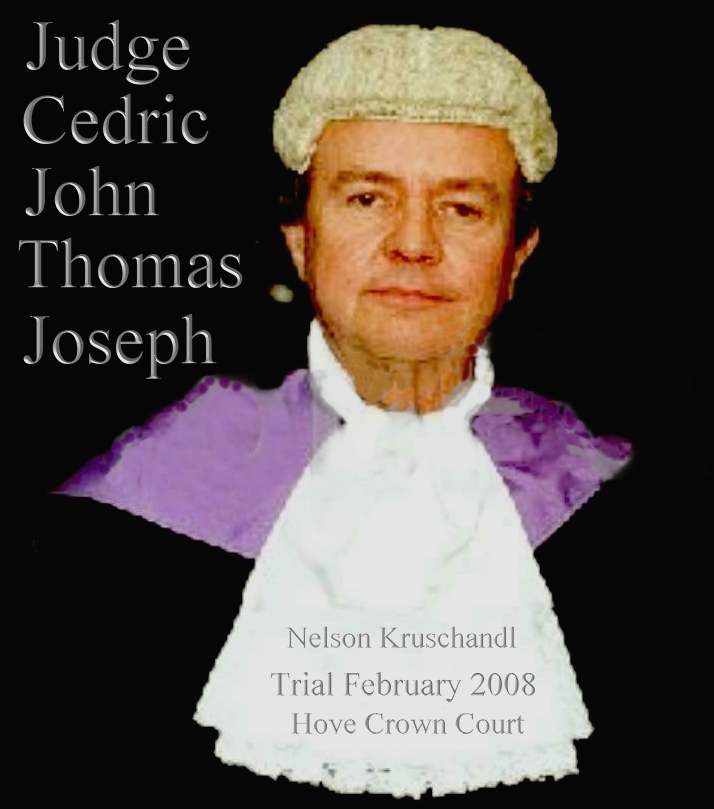
UP
TO 10% OF JUDGES -
According to a Report by Chris Mullin out of the professional magistrates and judges asked to declare whether they were members, more than 5% either refused to say or failed to reply to the request.
Among lay magistrates, more than 14% did not answer the question. The report said on figures given, up to 20% of lay magistrates could be masons and up to 10% of judges and professional magistrates.
41% of Crown Prosecution staff failed to respond when asked about
masonic membership. Silence on the subject is of course an indicator as
to admission. The Report could not rule out significant interference by
Masons in the Criminal Justice System. A masonic link is alleged in the
case of a Sussex conviction, the subject of an ongoing investigation,
where an influential member of the complainant's family is demonstrably
a Mason, not only that, but also a former lodge master.
THE
INDEPENDENT 27
JUNE 2000
Senior police officers have defied official disapproval and established a new Masonic lodge despite widespread public fears about the influence of the secret society on the criminal justice system.
The police-only lodge has been set up by officers from the West Mercia force area which covers Herefordshire, Worcestershire and Shropshire.
The West Mercia Lodge No 9719 was consecrated on 10 June in the village of Craven Arms, near Ludlow, Shropshire, with more than 200 seniorMasons in attendance. It is the 11th police-only lodge in Britain and the second in the West Midlands area - the other is in Worcester.
A list of "founders and first officers" of the lodge named 34 serving and retired officers in the lodge of the rank of chief inspector downwards. A further 11 officers are expected to join at the next meeting, which will take place in September.
Peter Neyroud, Assistant Chief Constable at West Mercia, confirmed that one of the new lodge's officers wrote to him in February to inform him of the move, but the force is clearly unhappy about it. "The constabulary would not encourage officers to become Freemasons in view of widespread public concerns over the need for transparency in police relationships with the community," Mr Neyroud said.
"If, despite this, officers make the individual decision to become Freemasons, the force would strongly encourage them to register this membership in the existing register of individuals' interests."
There has been growing public suspicion about the grip of Freemasonry on police officers. Following a number of scandals, in which Masonic influence was alleged - such as the investigation into the West Midlands Serious Crime Squad in the early Nineties - many people believe the all-male society has malign influence over some parts of the criminal justice system.
The first worshipful master of the lodge is Chief Inspector A W Sykes, who is based in Shrewsbury. Mr Sykes declined to comment. John Hamill, of the United Grand Lodge, said the Masons thought Mr Nayroud's fears were "ill founded".
Police chiefs have been split over how to respond to growing pressure from ministers and MPs for officers to declare whether they are Freemasons.
The Chief Constable of Merseyside, Norman Bettison, launched a general register of officers' interests by writing to his force last summer stating that he had no reason to question the integrity of Masons and he had good friends who were members of lodges.
The Chief Constable of Norfolk, Ken Williams, has said he does not believe membership of the Masons is compatible with being a police officer, primarily because of the public's negative view of the society.
The Commons Select Committee on Home Affairs ran an inquiry into Freemasonry in 1998-1999, and last year Jack Straw, the Home Secretary, announced a trial voluntary register for police officers to declare if they were Freemasons. Parallel steps have been taken for judges, probation officers and
Crown Prosecution Service staff.
West Mercia said the force had a register of officers' outside interests but it was not a public document. It refused to say how many of the new lodge had declared membership of the Masons.
A member of the select committee, Robin Corbett, Labour MP for Birmingham Erdington, said the signs were that the voluntary register had failed. "We now believe that a register needs to be mandatory and public," he said, adding that the Home Office was a year overdue in responding to the committee's report.
"We are aware we owe the committee a response which we hope to deliver shortly," a Home Office spokesman said. "We would consider primary legislation if the voluntary arrangements proved to be ineffective."
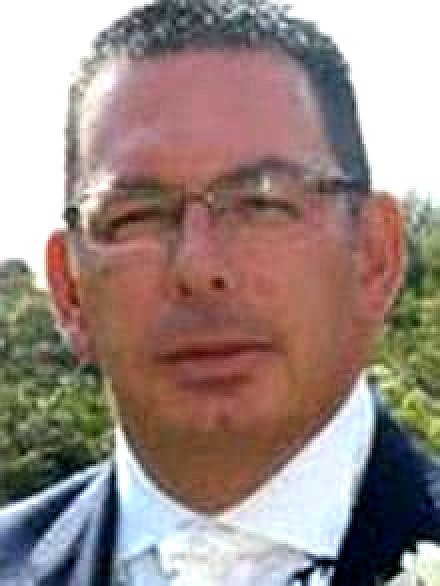
JOHN
TULLY - A
Metropolitan police officer who is a confirmed Mason. It seems to us
that the police forces in the UK are running rings around the system
where there is an obvious conflict of interest, thumbing their noses at
victims of masonic abuse. Where many judges and prosecutors are also in
the mix, there is real scope for wrongful convictions to be ordered.
Masons in the system with authority will more than likely seek to cover
their tracks by ordering non-masons to arrest and interview their
targets, then make sure that any evidence to show innocence is not
included in a case. If they can arrange for a Judge who is also a Mason,
or a Judge who has masonic friends to hear a case, that would then
complete the veil of cover-up so that during a casual look at any
allegation, there would appear to be no masonic connections, when in
fact the whole charade is a masonic exercise asserting their power with
almost complete immunity guaranteed by the state.
The
hallmarks of such a conspiracy are that the victims are tagged by the
police as serial complainers. With this tag in place, untainted officers
who might otherwise have investigated a complaint, are being instructed
to drop the matter. In some cases, police officers attending a site will
have been coached as to how to fend off allegations that that would
otherwise respond to, and use all the evasive answers that they can
muster, the favourite being that: "this is a civil matter." If
you have experienced this, welcome to the club. You are a victim of
masonic influence.
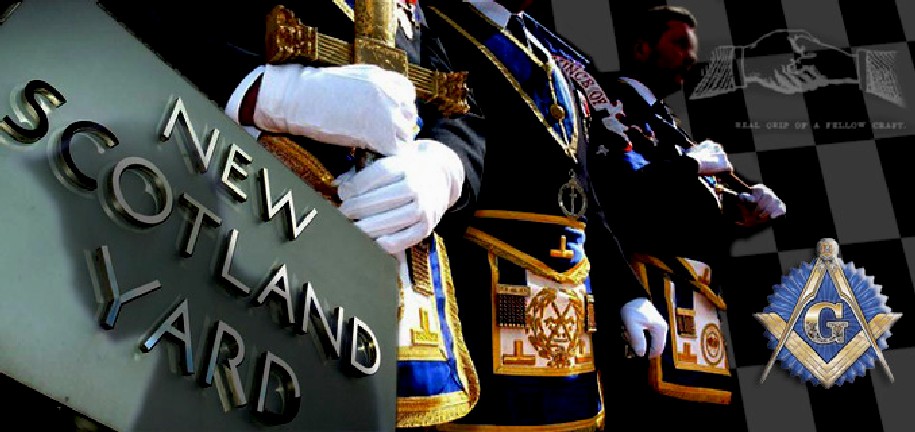
A
- Z OF SUSSEX POLICE OFFICER INVESTIGATIONS
Aran
Boyt
Chris
Sherwood
Colin
Dowle
Jo
Pinyoun
Joe
Edwards
Giles
York
Gordon
Staker
James
Hookway
Kara
Tombling
Ken
Jones
Martin
Richards
Neil
Honnor
Olivia
Pinkney
Paul
Whitehouse
Robert
Lovell
Sarah
Jane Gallagher
Sir
Ken Macdonald QC
Timothy
Mottram
The
above is just a few of a number of persons likely to be investigated in
respect of certain cases brought against Wealden Action Group members, on
the instigation of known Masons, councillors, or planning officers, many
of which are themselves Masons.
LINKS
& REFERENCE
http://www.worldbulletin.net/haber/126822/freemasons-involved-in-uk-police-corruption
http://news.bbc.co.uk/1/hi/uk_politics/352109.stm
http://metro.co.uk/2016/04/26/hillsborough-tragedy-did-the-freemasons-influence-the-police-5842965/
http://www.telegraph.co.uk/news/uknews/law-and-order/8713343
/Freemasons-in-the-police-leading-the-attack-on-David-Camerons-riot-response.html
http://www.bruceonpolitics.com/2014/07/07/freemason-paedophilia/
http://www.westlancsfreemasons.org.uk/brian-raine-celebrates-50-years-in-freemasonry/
https://www.youtube.com/watch?v=0hX-NxBVvZA
https://www.youtube.com/watch?time_continue=18&v=pUm2vGX_aSU
http://www.independent.co.uk/news/uk/this-britain/police-defy-force-with-masonic-lodge-5370907.html
http://www.internet.lodge.org.uk/other-articles/96-library/otherarticles/243-freemasonry-the-police-and-the-judiciary
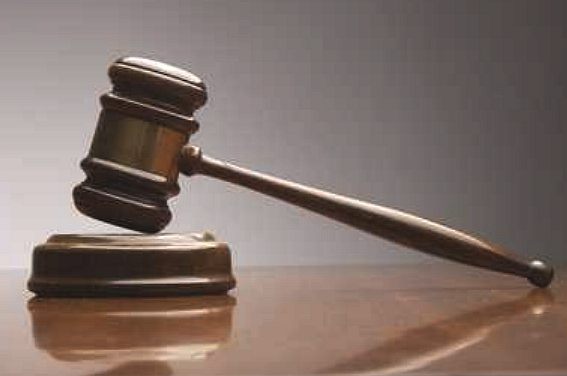
MORE
LINKS:
|






